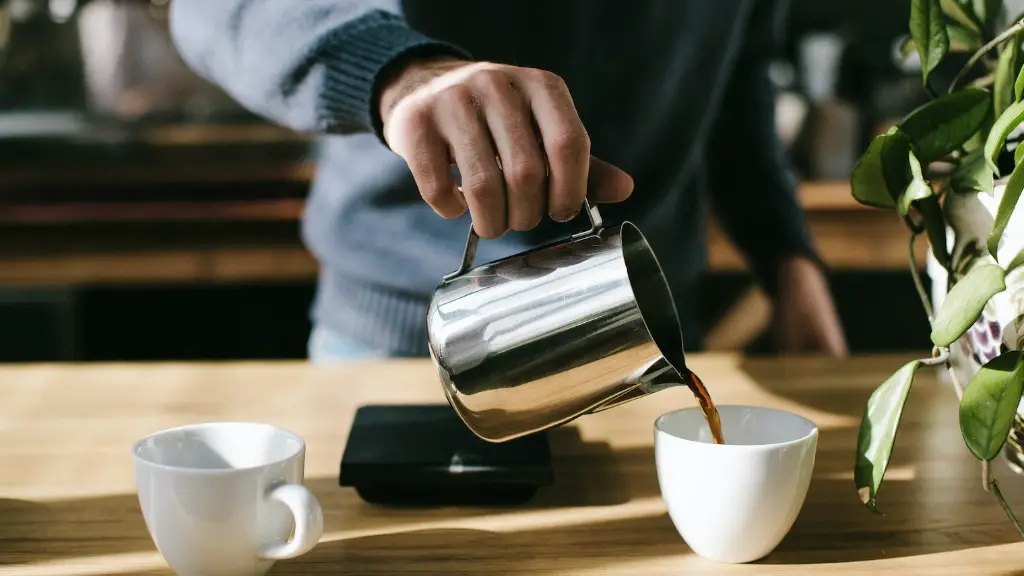Weight loss is something many people strive for. With the season of beach bodies and summer quickly approaching, diet enthusiasts are searching for ways to maximize the results of their efforts. Could drinking coffee be useful to enhance your weight loss routine? Let’s try to answer the question — can you drink coffee when trying to lose weight?
The answer to that question is certainly not a straightforward one. Some experts disagree on the subject, and many individuals experience different results when drinking coffee due to their body type. In any case, it is always essential to talk to a professional nutritionist or doctor to get personalized advice on the matter. To get a reliable overview, we will explore the opinions of different experts, relevant data, and individual stories.
Can Coffee Benefit Weight Loss?
Coffee can be both somewhat beneficial and somewhat detrimental to your weight loss goals, depending on how much of it you consume and what you add to it. Coffee itself is naturally calorie-free and can even reduce your appetite when consumed in moderate portions. Drinking more than two cups a day can lead to dehydration and sometimes cause an increase in appetite. It’s also crucial to avoid high-sugar coffee specialties like the frappes that are so popular nowadays.
Another opinion comes from nutritionist Dr. Mark Hyman: “Coffee can be part of a weight-loss strategy as long as you make sure you’re not adding excess sugar and cream,” he says. He also advises to be careful with low-calorie artificial sweeteners like Splenda or stevia, as they might have a lasting impact on your metabolism.
Certain studies have also been done on the subject. One study conducted by the National Institute of Health concluded that moderate consumption of coffee can improve metabolism and reduce the risk of type 2 diabetes. The study found that coffee can boost your metabolism by 3-11% with the effects lasting for about three hours.
Individual Experiences
It is also interesting to take a look at some individual experiences when drinking coffee and trying to lose weight. “I was trying to lose weight and decided to stop drinking coffee”, says Tonya Jones, a weight loss enthusiast. “It was hard at first, but after two weeks my stomach felt much better, and I could see a difference on the scales. I’m sure that stopping drinking caffeine helped me to lose the extra weight that I was trying to get rid of.”
For some, coffee is an essential part of their weight loss journey. “I’ve been drinking black coffee for years now,” admits Martha, a long time health blog reader. “I tried to cut back for a while, but my energy levels took a dive. I just couldn’t stay focused and motivated without my morning cup. In the end, I decided to listen to my body and keep drinking my coffee but in reasonable amounts. It feels like the right decision because I’m still losing weight.”
Caffeine Levels to Consider
When it comes to how much caffeine you should consume, it depends on a few factors such as your age, weight, and health status. Generally speaking, experts recommend limiting your intake to 400mg per day. This translates to four cups of coffee, depending on the caffeine content of the particular blend. It is worth mentioning that even if you are trying to lose weight, it is better to reduce or eliminate sugary drinks such as soft drinks, energy drinks, and sugary coffee drinks.
Having said that, you might want to consider decaf coffee for a change of pace. It is an excellent option for those who want to reduce their caffeine intake and still enjoy the flavor and aroma of coffee. Many people find that decaf coffee has a more subtle flavor and is easier to digest. It also contains some of the beneficial compounds found in regular coffee like antioxidants, minerals, and vitamins.
Consuming Coffee to Enhance Exercise Performance
Coffee has been studied for its ability to enhance physical performance, making it a good choice for those looking to lose weight. Caffeine has been shown to reduce fatigue and improve endurance by releasing adrenaline and other hormones that help to increase energy levels. Hence, drinking coffee before a workout could help to boost your performance and aid in weight loss.
It is essential, however, to find the right amount of caffeine for you and your body type. Too little, and you won’t get the desired effect, and too much could have adverse effects. A cup of coffee before working out is probably enough for most people.
Overall Benefits and Risks
Though coffee may have few calories, the calories from cream or added sweeteners do quickly add up — making the beverage unhealthy if you include those ingredients. For example, adding one tablespoon of cream to your coffee would be an additional 52 calories, and adding a teaspoon of sugar would be an additional 16 calories. It is definitely preferable to opt for alternatives such as skim milk and honey or stevia as an alternative to sugar.
It is also worth noting that caffeine isn’t exactly harmless. It can cause high blood pressure, anxiety and can even increase your risk of heart disease. That being said, consuming coffee in moderation is unlikely to have any serious side-effects. And, as long as you pay attention to your calorie intake, it could be beneficial for your weight loss journey.
Choosing the Right Coffee Blend
Keeping in mind the health risks associated with coffee, it is important to ensure that you are drinking the right type of coffee. Choose high-quality, organic and fair-trade coffee, so that you are at least sure of the quality of the beverage you are consuming. Coffee can be beneficial for weight loss, but it is a good idea to pay attention to what you are drinking and eating as you are trying to reach your goals.
Another thing to consider is the brewing method. Boiled coffee is usually quite high in caffeine and can cause stomach irritation. This is because boiling the coffee grounds leaves behind a residue that can irritate the stomach. To avoid this, use a drip brewer or French press, both of which are gentler methods that produce less acid.
Take Home Message
When it comes to coffee and weight loss, there is no one-size-fits-all answer. It is best to consult with a professional for personalized advice. That being said, moderate coffee consumption can certainly helpful for some people, providing it is taken without additional sugar or cream. The key is to find the right blend and the right dosage for you, and to always remember to check with a professional to ensure that you are on the right track.




